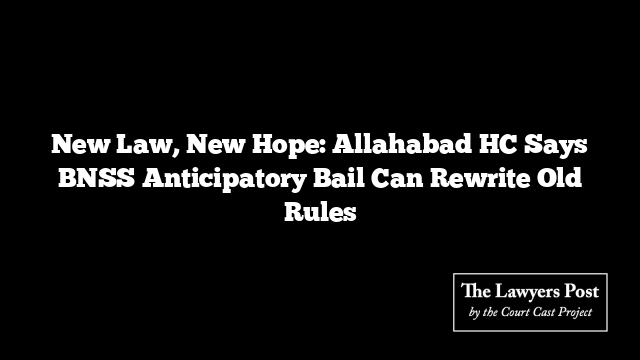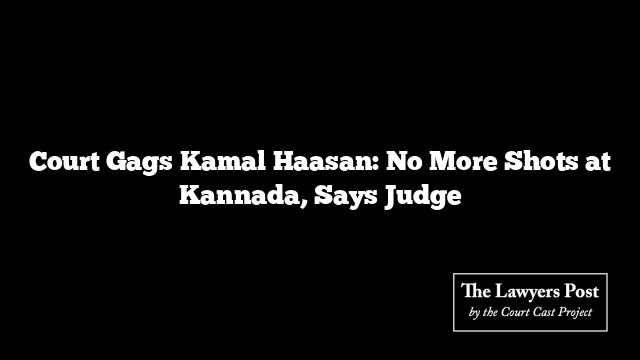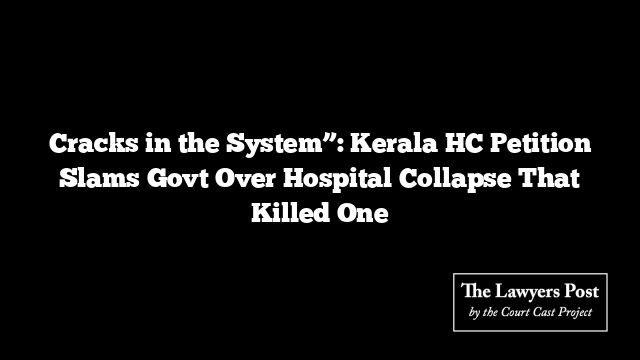The legal winds have shifted—and the Allahabad High Court just made sure everyone felt the breeze.
In a significant ruling, the Court has declared that the Bharatiya Nagarik Suraksha Sanhita, 2023 (BNSS) breathes new life into the anticipatory bail landscape, even for cases that predate the law. Specifically, it overrides older restrictions under Section 438(6) of the Code of Criminal Procedure (CrPC), which barred anticipatory bail in severe cases—those punishable by death or life imprisonment—under certain special laws like the UAPA, NDPS Act, Official Secrets Act, and others.
But here’s the kicker: BNSS doesn’t carry those restrictions. And according to the Court, that absence isn’t accidental—it’s deliberate. This procedural shift, it said, applies retrospectively, fundamentally altering how such bail pleas must now be evaluated.
The judgment came while granting relief to a 78-year-old man, Abdul Hameed, who had been caught in the coils of an old case dating back to 2011. A village shooting had led to his name appearing in an FIR, though initial investigations kept him off the charge sheet. Years later, during the trial, a witness flip-flopped, and the trial court suddenly summoned Hameed under Section 319 CrPC. His first plea for anticipatory bail failed—thanks to the then-prevailing CrPC bar.
But now, with BNSS in effect since July 1, 2024, Hameed returned to court. His argument? The law had changed, the bar no longer existed, and as per procedural principles, he was entitled to the benefit of the new legal framework. The Court agreed.
Justice Chandra Dhari Singh, writing for the bench, leaned heavily on the doctrine of beneficial legislation and procedural retrospectivity.
“The applicant is entitled to the benefit of the more liberal provisions introduced by BNSS, regardless of when the alleged offence was committed,” the Court observed.
Importantly, it clarified that Section 482 of BNSS—now the governing provision for anticipatory bail—contains no echo of the earlier bar found in Section 438(6) of the CrPC. That silence, the Court stressed, is loud and intentional.
State counsel pushed back, insisting that Hameed’s new plea was nothing more than a tactical evasion. But the Court wasn’t swayed. It held that procedural laws—unless clearly exempted—do apply to pending matters. Since BNSS doesn’t create new crimes or change punishments, it reshapes only the path to justice, not its outcome.
And for Hameed, that path is now open. With his age, his absence from the initial charge sheet, no fresh evidence, and an investigative officer who originally found the case against him baseless—the Court found enough reason to grant him protection from arrest.
The ruling sets the tone for how courts might treat bail applications in legacy cases now caught in the crosshairs of a newer, more lenient statute. For those once locked out by technical bars, the BNSS could be the key that fits.





